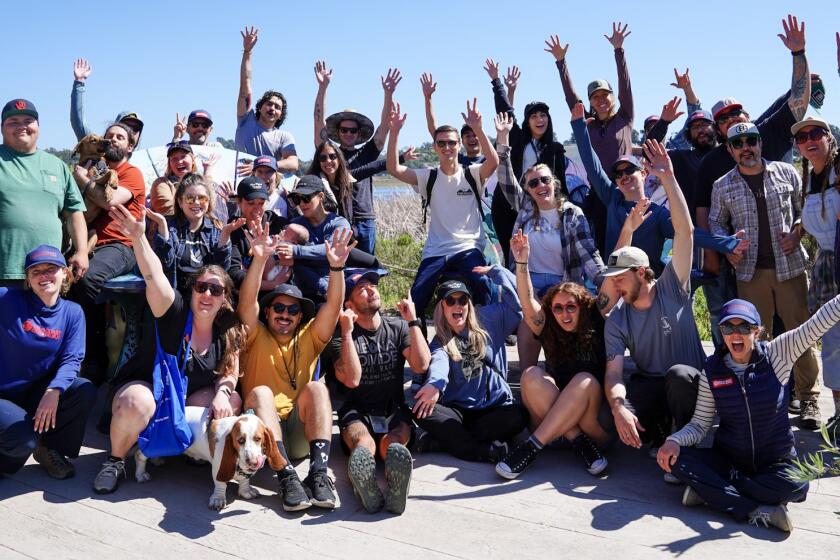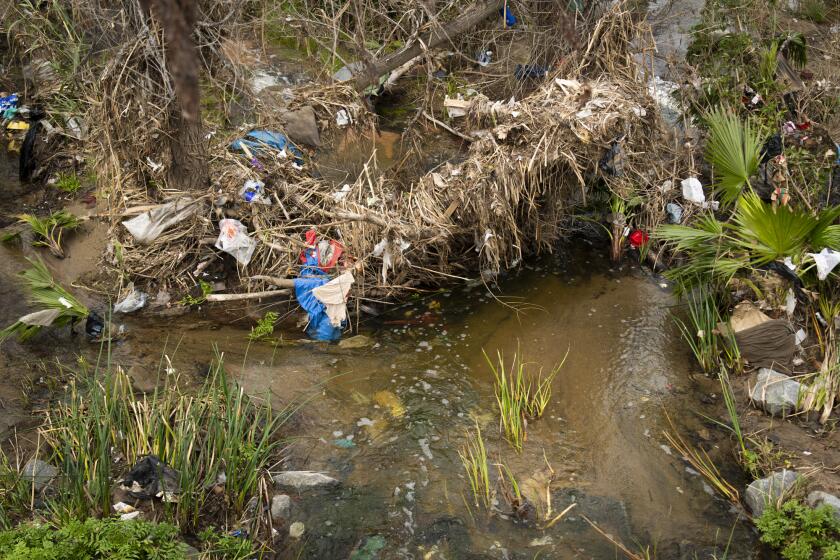Opinion: The rise in anti-Asian American and AAPI hate is alarming. Here’s what San Diego County is doing.

Stephan has been the San Diego County district attorney since 2017.
The dramatic rise in anti-Asian American and Pacific Islander (AAPI) hate incidents and hate crimes since the start of the COVID-19 pandemic is alarming.
More than 6,600 incidents of racism and discrimination were reported to a national coalition called Stop AAPI Hate between March 2020 and March 2021. Graphic videos showing violence against AAPI individuals, like 75-year-old Pak Ho, who was shoved to the ground in Oakland and later died from head trauma, or the mass tragedy that happened in the Atlanta area two months ago when six Asians were shot and killed, have deeply affected the AAPI community around the world and affected all who believe in dignity for everyone.
We provide this platform for community commentary free of charge. Thank you to all the Union-Tribune subscribers whose support makes our journalism possible. If you are not a subscriber, please consider becoming one today.
Here in San Diego, we saw a similar rise in AAPI hate crimes. After receiving no anti-AAPI hate crimes cases in 2018 or 2019, our office has filed felony hate crimes cases in three anti-AAPI cases since the start of the pandemic.
Since I became the San Diego County district attorney, combating hate crimes has been one of my priorities. Hate crimes don’t just affect the targeted victim but create a ripple effect of fear and pain for everyone who shares the victims’ characteristics. As a result, we’ve nearly tripled our hate crime prosecutions and convictions. My office regularly trains law enforcement on how to identify and investigate hate crimes cases. And we collaborate with various community leaders on how to address hate incidents before they rise to hate crimes.
My office also started the first-in-the-state, online hate crime reporting tool in April 2020, when the country initially saw the first wave of anti-AAPI hate crimes. We’ve encouraged the public to report hate incidents and hate crimes in non-emergency situations directly to our office so we can identify trends, make sure no potential hate crime case falls through the cracks and provide victim services to those harmed. The reporting tool can be found at sandiegoda.com under the Helping Victims tab, or the public can also call our hotline at (619) 515-8805 or email us at hatecrimes@sdcda.org. Through our reporting tools, we’ve received 155 tips, including 13 hate incidents targeting the AAPI community. Most of those hate incidents have been substantially motivated by the blaming of Asians for the pandemic.
But there’s more that we can all do to combat hate. We need to increase education to our communities regarding the importance of reporting and documenting hate crimes. We know that hate crimes are one of the most underreported categories of crimes. If you’re a victim of or witness to a hate incident or a hate crime, it’s imperative that you report it to law enforcement. In an emergency, always call 911.
We need to better support hate crimes victims. Most hate crimes occur on our streets, sidewalks and parking lots when we’re going to work or running errands, where witnesses are bound to see and hear the incident. The fear hate crimes victims experience is unique. They are targeted for characteristics that they can’t change: their race, ethnicity, nationality, religion, sexual orientation, gender or disability. Standing with those victims and supporting them in those critical moments after the crime can provide them the strength to report the crime and feel safe in their community knowing that allies are around.
For our non-English speaking victims of hate crimes, we need easier access to interpreter services. While English and Spanish are the two most commonly spoken languages in our region, Tagalog, Chinese and Vietnamese are third, fourth and fifth, respectively. Language barriers should not prevent any crime victim from reporting.
Finally, we need more anti-bias programs for our youth. The latest intelligence shows that teens and adults are being recruited by White supremacist and White nationalist groups. The recruitment message is simple but effective: You are losing your power and influence to other races. This message being sent to these young minds needs to be countered with one of teaching values of racial equity, diversity and inclusion.
We’re so fortunate to have a large and vibrant AAPI community in San Diego County, and we must do all we can to protect and support them and let them know we stand with them against bias and hatred, and will hold those who harm them accountable.
Get Weekend Opinion on Sundays and Reader Opinion on Mondays
Editorials, commentary and more delivered Sunday morning, and Reader Reaction on Mondays.
You may occasionally receive promotional content from the San Diego Union-Tribune.






